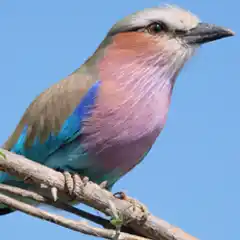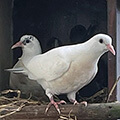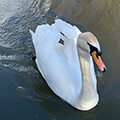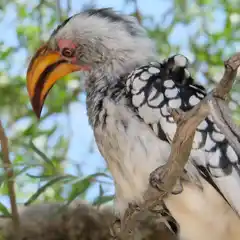Conflict of Interest Policy
1. Conflict of Interest - definition
A conflict of interest (CoI) occurs when a Trustee Director, Member, or Officer has a responsibility, loyalty, or vested interest (such as money, status, knowledge, relationships, or reputation) to another organisation or person which could compete with their responsibility to The Houghton Trust and put into question whether their actions, judgement, or decision-making can be unbiased. Any decision must be based only on what is best for The Houghton Trust without influence from personal interests.
2. Conflict of Interest Policy
A charity must properly identify and deal with CoI. This CoI policy tells Trustees Directors, Members, and Officers of The Houghton Trust (hereafter referred to collectively as Committee Members):
- How to identify a CoI
- How to a declare a CoI
- How to deal with a CoI
3. Identifying Conflicts of Interest
Financial conflicts occur when Committee Members, or persons or organisations connected to them, could get money or something else of value or benefit from a decision which they made. sThis excludes legitimate expenses (for example, for attending a meeting of The Houghton Trust).
Loyalty conflicts occur when, for other reasons, Committee Members might not be able to make decisions that are best for The Houghton Trust, for example if the decision involves a person or organisation linked to Committee Member (their employer, or another charity where they are a member of the Committee, their relatives, or friends).
4. Declaring interests of Committee Members
- A Committee Member must declare the nature and extent of any interest, direct or indirect, which they have in a proposed transaction or arrangement with The Houghton Trust or in any transaction or arrangement entered into by The Houghton Trust which has not previously been declared.
- A Committee Member must absent themself from any discussions of The Houghton Trust Committee at which it is possible that a CoI will arise between their duty to act solely in the interests of The Houghton Trust and any personal interest.
- The conflicted Committee Member must not take part in the decision or vote.
- The conflicted Committee Member must not be counted in the quorum.
- If a CoI arises for a Committee Member because of a duty of loyalty owed to another organisation or person and the conflict is not authorised by virtue of any other provision in the Articles of Association, the unconflicted Committee Members may authorise such a CoI where the following conditions apply:
- the conflicted Committee Member is absent from the part of the meeting at which there is discussion of any arrangement or transaction affecting that other organisation or person;
- the conflicted Committee Member does not vote on any such matter and is not to be counted when considering whether a quorum of Trustee Director, Member or Officer s is present at the meeting; and
- the unconflicted Committee Members consider it is in the interests of The Houghton Trust to authorise the conflict of interests in the circumstances applying.
- A CoI arising because of a duty of loyalty owed to another organisation or person only refers to such a conflict which does not involve a direct or indirect benefit of any nature to a Committee Member or a connected person.
- Note: An Associate Member of the Houghton Trust is not precluded from applying for Houghton Trust Travel Grants, Small Project Research Grants, Researcher Mobility Grants, or Vacation Studentships.
5. Dealing with a Conflict of Interest
(1) Declaring Conflicts of Interest
- Each Committee Member must complete a Conflict of Interests Form, a copy of which will be retained by the Secretary. The form must be reviewed on an annual basis, or if a change occurs.
- Before discussions or decisions happen, a Committee Member must tell the other Committee Members if they personally have a CoI.
- A Committee Member should not ignore something that might be a conflict for themself or another Committee Member.
- Declaration of CoI should be a standard agenda item at the start of every meeting of The Houghton Trust Committee.
- The Houghton Trust should keep and update a register of interests.
(2) Consider removing Conflicts of Interest
- The Committee will take action to stop the CoI from affecting a decision.
- A decision will be based only on what is in the best interests of The Houghton Trust.
- If the CoI is serious, the Committee must consider if it is best to remove the conflict.
- If the CoI is not serious and the Committee decide that the conflict does not need to be removed, the conflict must be managed in a different way to prevent it from affecting the decision, using the following steps.
(3) Managing Conflicts of Interest
- Committee Members (or organisations or people connected to them) must not benefit from The Houghton Trust, unless it is allowed by any of the following:
- Rules in The Houghton Trust’s governing document
- Thelaw
- The Charity Commission or the Court
(4) Recording Conflicts of Interest
- The record of CoI will contain:
- What the conflict is
- Who or what it affects
- When it was declared
- How it was managed
6. Examples of potential Conflict of Interest within The Houghton Trust
| Arrangement or decision |
CoI |
How the CoI is managed |
| Nomination and election of new Committee Members |
A Committee Member could nominate a researcher with whom they have a connection and could favour that nominee over other nominees |
New Committee Members are elected by a vote of the Committee; any Committee Member with a CoI should not take part in the vote |
| Review of grant applications (Travel Grants, Small Project Research Grants, Researcher Mobility Grants, Vacation Studentships), to select those worthy of funding |
A Grant Reviewer who has a connection with an applicant (or their institution) could favour that applicant over other applicants |
Any Grant Reviewer who has a connection with the applicant (or their institution) who will benefit from award of a grant will not review the application for which they have a CoI |
| Nomination and selection of Avian Pathology lecturers |
A Committee Member could nominate a researcher with whom they have a connection and could favour that nominee over other nominees |
Selection of the Avian Pathology lecturer is voted on by the Committee, with input and authorisation from the World Veterinary Poultry Association |
7. Disputes
If a dispute arises between Committee Members about the validity or propriety of anything done by the Committee, and the dispute cannot be resolved by agreement, the parties to the dispute must first try in good faith to settle the dispute by mediation before resorting to litigation.
8. Serious Conflicts of Interest
- Serious CoI arise where:
- A majority of Committee Members have a CoI
- The decision involves significant money or risk, and there is a CoI
- In these situations, the following options will be considered:
- Removing the CoI
- Changing the plan
- Asking the conflicted Trustee Director, Member, or Officer to resign
- Deciding not to appoint a conflicted person
- Asking the Charity Commission to authorise the decision
- Taking legal advice if necessary
9. Review of Conflicts of Interest Policy
- This policy will be reviewed annually at the annual meeting of the Committee.
- Any questions about this policy may be addressed to the Secretary sue.baigent@outlook.com
- This Policy was reviewed in May 2024.







